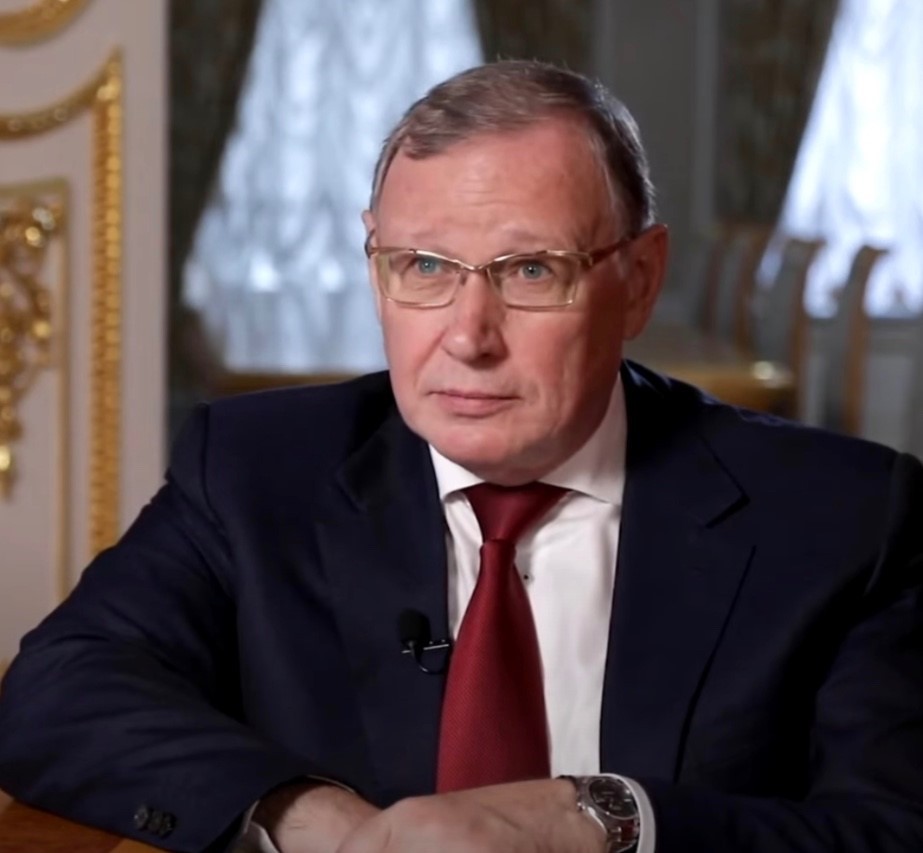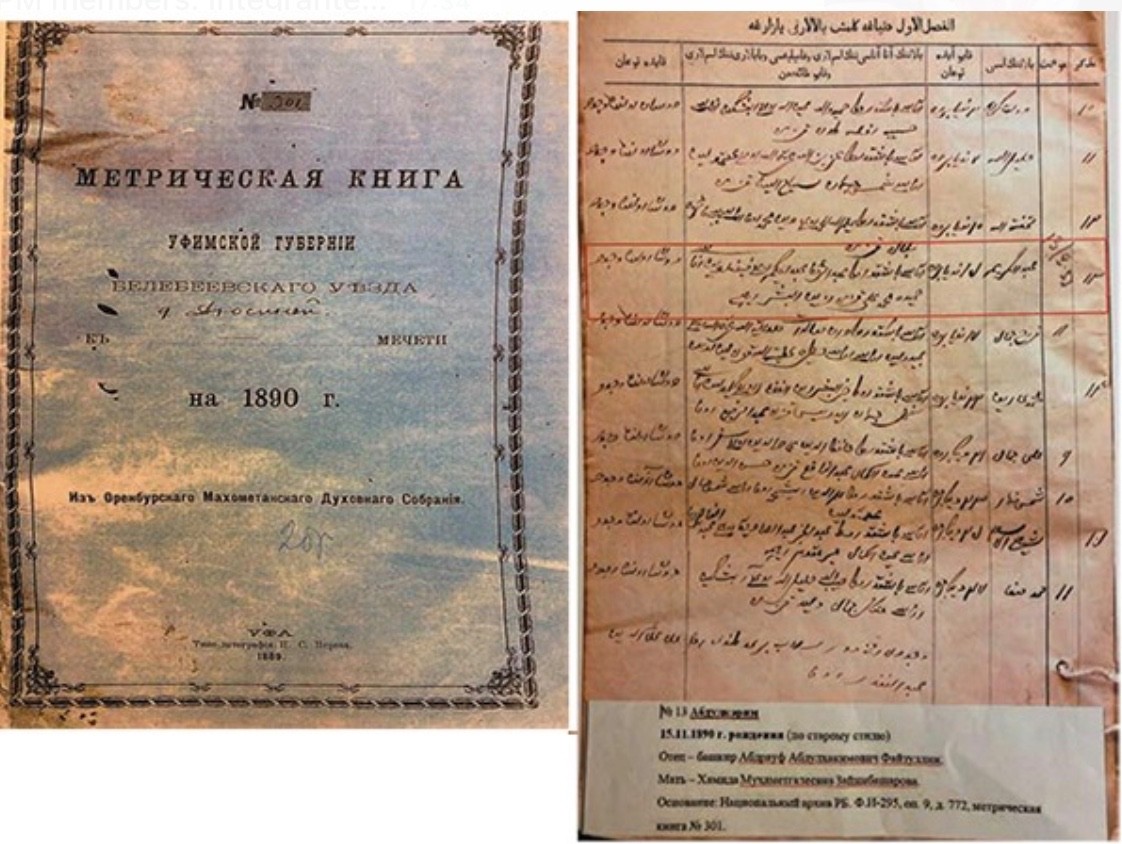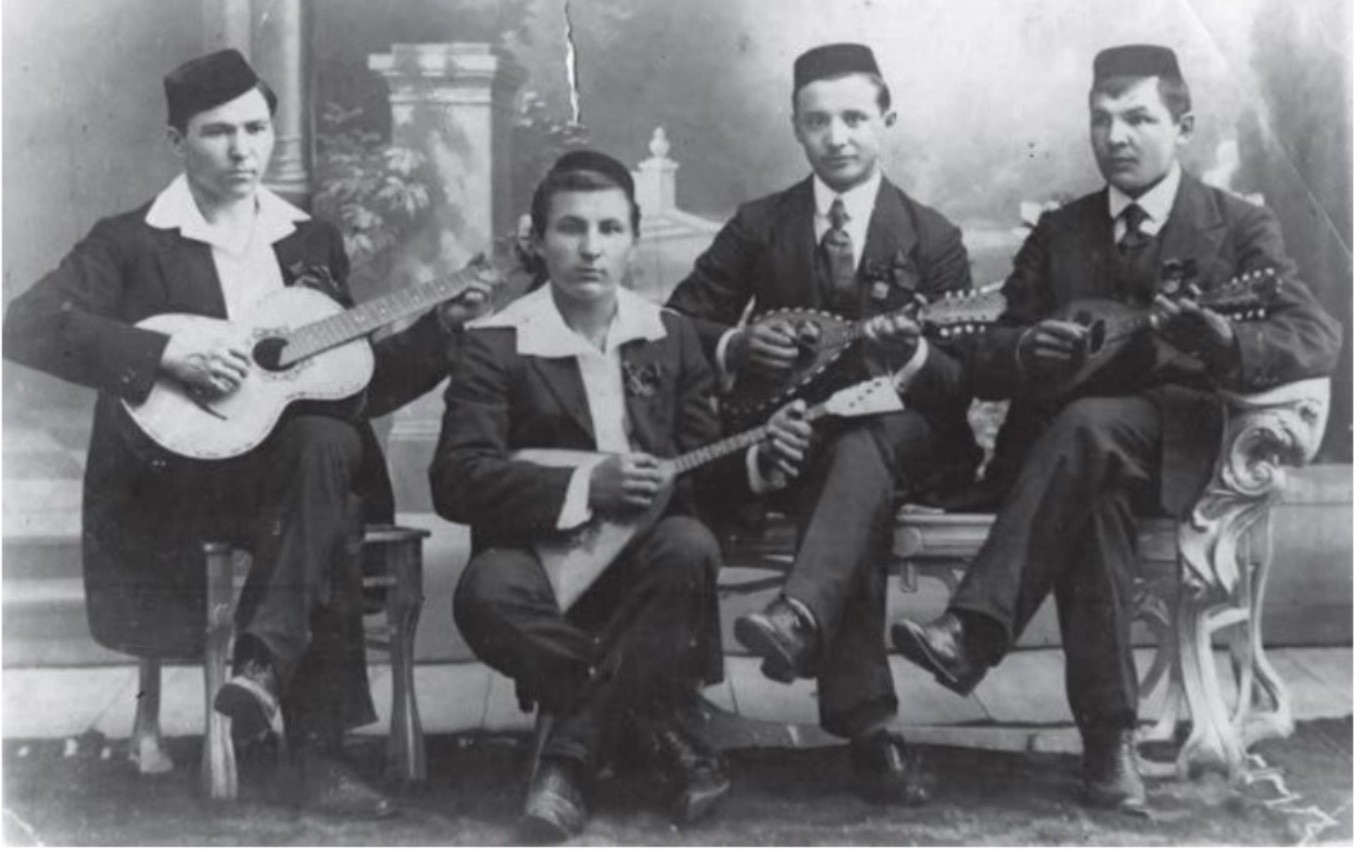Recently published in the Silk Road Literature Series is the book (Karim Khakimov, a Biography), about the fate of Islam and communism in Soviet Russia, written by the iconic Russian diplomat Oleg Ozerov, translated into Arabic by: Dr. Muhammad Nasr al-Din al-Jabali and Dr. Adel Muhammad Siddiq.

In his introduction to the book published by Al-Nasher Publishing and Distribution House (536 pages), Cairo, Professor Vitaliy Naumkin, a member of the Russian Academy of Sciences and recipient of the Russian State Prize, wrote: “This is an unusual book. Above all, it is distinguished by the similarity between its author and its hero. The first was and still is a high-ranking Russian and Soviet diplomat who served as our country’s ambassador to the Kingdom of Saudi Arabia in the period between 2010 and 2017. As for the second, he was the first head of a Soviet diplomatic mission in Saudi Arabia (first the Kingdom of Hijaz) in the period between 1924-1928 and then in the period between 1936-1937, which left a large and important impact in the history of Soviet diplomacy and in the difficult period in the history of relations between the two countries. The two personalities served almost the same period of time in the kingdom".

Professor Vitaly Naumkin added, “The character of the hero of this book and his entire biography is also exceptional. It witnessed sharp fluctuations. He grew up in his teenage years in a poor rural family and had to work for a rich man to earn his living. Then there was the stage of studying in school, then the secondary stage, and then he participated in the revolution, he worked as an important statesman, then a party man, and a military officer, and he held many other positions, including in the regions of Orenburg and Central Asia.
Karim also worked as a diplomat. In the period between 1921-1924, he was appointed Consul General of the Soviet Union in the city of Mashhad in Iran, then Consul General and Plenipotentiary Representative to the Soviet Union in the city of Jeddah. Then, he went to the right-wing of the kingdom in the period between 1929-1931, then he was sent again to Jeddah and after that he fell victim to Stalin’s oppression.
After many years of oblivion, Karim regained the appreciation he deserved from the state, but, unfortunately, that was after his death. Karim Abduraufovich is a source of pride for the people of Bashkortostan, to which he belongs by nationality, as well as the people of Tatarstan, who also consider him one of their sons.”
Through this interesting book, Oleg Ozerov presents to us not only his long experience as a diplomat and knowledgeable about Middle Eastern affairs, but also his wonderful experience as a researcher and thinker in the history of Russia and a talented writer and literary man who has the ability to attract the reader’s interest. This book fills a huge void that many previous studies that dealt with the life of Karim Hakimov could not fill. It is enough to go back to the chapters in which he talks about the unknown periods of the hero’s life.
While previous studies by Russian researchers dealt with the period of his successful diplomatic work in the Arabian Peninsula, the years of his life in Turkestan and Persia remained unknown and did not receive sufficient attention or in-depth study.

Also for the first time, Oleg Ozerov provides many important facts that decorate this book. Although he dealt with a topic that many had dealt with before him, he was able to write the history of the emergence, formation and development of this unique and unrepeatable character, namely the character of the hero Karim Khakimov. He did this thanks to a deep and comprehensive study of archival materials and through his great understanding of everything written by predecessors and their contributions, which were appreciated by him.
However, Oleg Ozerov often criticizes some of the hypotheses mentioned in the works of his predecessors, and in return proposes his personal perception of this or that event in the hero’s life, supporting that with arguments and evidence. The writer did not seek to portray the hero in an ideal way, but rather spoke of him as a human being who possesses many talents and abilities, but at the same time he has the same human weaknesses. This eliminated some of the stereotypical perceptions that previous researchers had tried to present about the hero.
Professor Vitaly Naumkin adds how the author succeeded in drawing a complete picture of the hero’s life and activity, and that the book does not only talk about the life of one person, but rather about the fate of Islam and communism in Soviet Russia, as stated in the book’s subtitle. It is a difficult topic that has been the subject of study and research for decades, both by Russian and foreign scholars, and it has been the subject of discussions, controversy, and clashes that continue to this day. By examining the hero's rich biography, Oleg Ozerov presents excerpts from the dramatic history of our country during the period of revolutionary fluctuations and the establishment of the Soviet Union.
Professor Vitaly Naumkin explains that after reading the title of the book and the name of the author, the reader may expect that the author will focus his attention on Russian foreign policy issues and talk about this particular aspect of Hakimov's life. However, the first pages of the book indicate that the writer's idea is much broader than that and more profound.
The author is not satisfied with talking about the life and achievements of a person, regardless of his importance (and Hakimov’s role is great in the history of Soviet diplomacy), but rather wants to share with us his visions about our country’s past. He succeeded in shedding light on the issue of formulating our country's foreign diplomatic approach, as well as our national policy, the conflict between the various movements in the Islamic regions, and the development of the federal system.

The writer does not seek to avoid talking about critical topics in the history of our country that he analyzed as a patriotic man who loves his country. In this book, the reader will discover some paragraphs that talk about the innermost secrets of the conflict and rivalry between the leaders of the Soviet Foreign Ministry, contradictions and conflicts between some ministries or interest groups, and will evaluate many of the characters who played an important role in the hero’s fate, including, for example, the character of Ahmed Zaki Walidi.
Through the hero's biography, we can clearly see the map of our country's pre-war political approach and learn about its victories and achievements as well as its tragic failures. The diversity and richness that we observe in this book makes it fall under many genres - scientific, literary, and social literature. This makes it an interesting and important work for a wide range of readers. You read this book in one go and cannot let it go.
The publication of this book had aroused great interest, especially in Bashkortostan and Tatarstan. Professor Vitaly Naumkin had certainly predicted, due to the Arabs’ interest in the character of Karim Hakimov, that this book would be translated into Arabic, which was done by two professors of Russian literature, Dr. Muhammad Nasr al-Din al-Jabali and Dr. Adel Muhammad Siddiq.
The book is supplemented by a color catalog showcasing documents and photographs of the author and his biography hero. Its cover was designed by Ashraf Aboul-Yazid. It will be made available at the Cairo International Book Fair (January - February 2024), at the stand of Eurasian Peoples Assembly and Eurasian Book Agency, with cooperation of the Russian House in Cairo

Comments